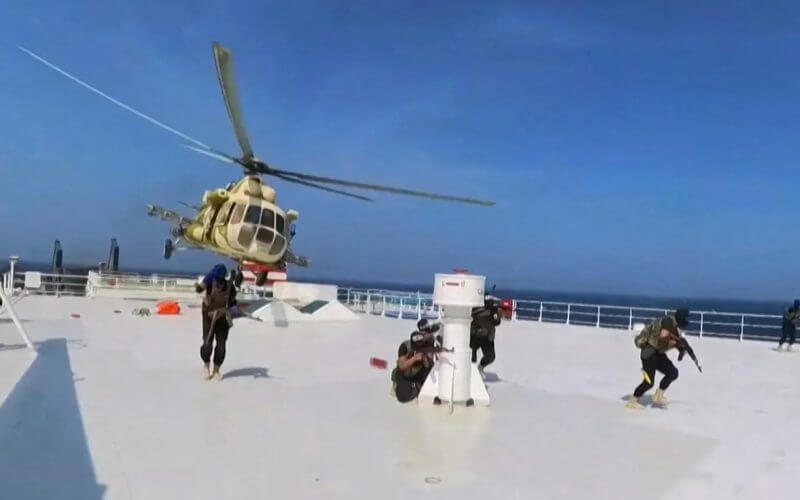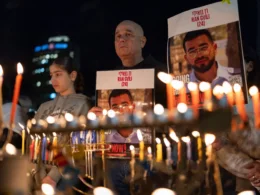Amid Israel's continued ground incursion against the Sunni-Islamic terrorist group Hamas, following the Oct. 7 massacre against Israeli civilians, the Houthi rebels, the Islamic Republic of Iran-backed terrorist group, continue to attack American naval ships and commercial vessels.
Houthi rebels claimed responsibility Tuesday for a missile strike on a Norwegian-flagged tanker, reiterating its support for the military campaign against Israel and the United States.
In November, the terrorist group seized an Israel-linked cargo vessel, the Galaxy Leader, and its international crew onboard. The terrorist organization recorded their attack on social media and other websites, showcasing it to the entire world.
According to reports, the assault by the Iranian-backed terrorist group against the Norwegian oil and chemical tanker Strinda occurred in the Bab el-Mandeb Strait.
Houthi military spokesperson Brigadier General Yahya Saree issued a video statement saying the group only fired on the tanker when it "rejected all warning calls."
The U.S. military's Central Command in the Middle East (CENTCOM) said an anti-ship cruise missile was "launched from a Houthi-controlled area of Yemen," hitting the Strinda.
The Houthis say they are defending the Palestinians from Israeli bombardment of the Gaza Strip and have launched a series of drones and missiles towards Israel.
American and French warships patrolling the Red Sea have taken down several missiles and drones several times since the terrorist groups began the attacks.
The Red Sea is a critical trade route for global shipping and energy supplies, with around 40% of international trade passing through the Strait of Bab-el-Mandeb (Gate of Tears), a narrow waterway that separates the Arabian Peninsula from the Horn of Africa.
France and other American allies have also witnessed their military forces attacked by the Houthis in the Red Sea.
France's Armies Ministry recently said its frigate, the Languedoc, showed down a Houthi drone that was "threatening" the Norwegian tanker during the attack near the Bab el-Mandeb Strati.
A French military spokesperson said the French frigate responded by positioning itself to "protect the affected vessel, preventing an attempt to hijack the ship."
Since the early 2000s, the Houthis in Yemen have rallied behind Shia Islam and the Islamic teachings of then-Ayatollah Ruhollah Khomeini, successfully overthrowing the country's government and gaining control of the capital, Sanaa.
In response to the Houthi takeover, Saudi Arabia, the United Arab Emirates (UAE), and others have launched a military intervention in Yemen, seeking to topple the Houthis and restore order in Sanaa.
Despite the military intervention, the Houthis continue to remain a powerful presence in Yemen, pledging loyalty to the Islamic Republic of Iran and receiving ample military and financial assistance from Tehran.
Upon entering office in January 2020, the Biden administration de-listed the Houthis from the US State Department's Foreign Terrorist Organization (FTO) List, hoping to secure an agreement between the Islamic terrorist and the Saudi-led military forces.
Since the Oct. 7 massacre, the Houthis and other Iranian-backed terrorist groups and the Shiite-Lebanese terrorist group Hezbollah in Southern Lebanon have vowed to support Hamas as Israel continues its ground incursion to eradicate the terrorist organization.
Related Story: Iran’s Defense Minister Warns Against Protecting Red Sea Shipping from Houthi Attacks









